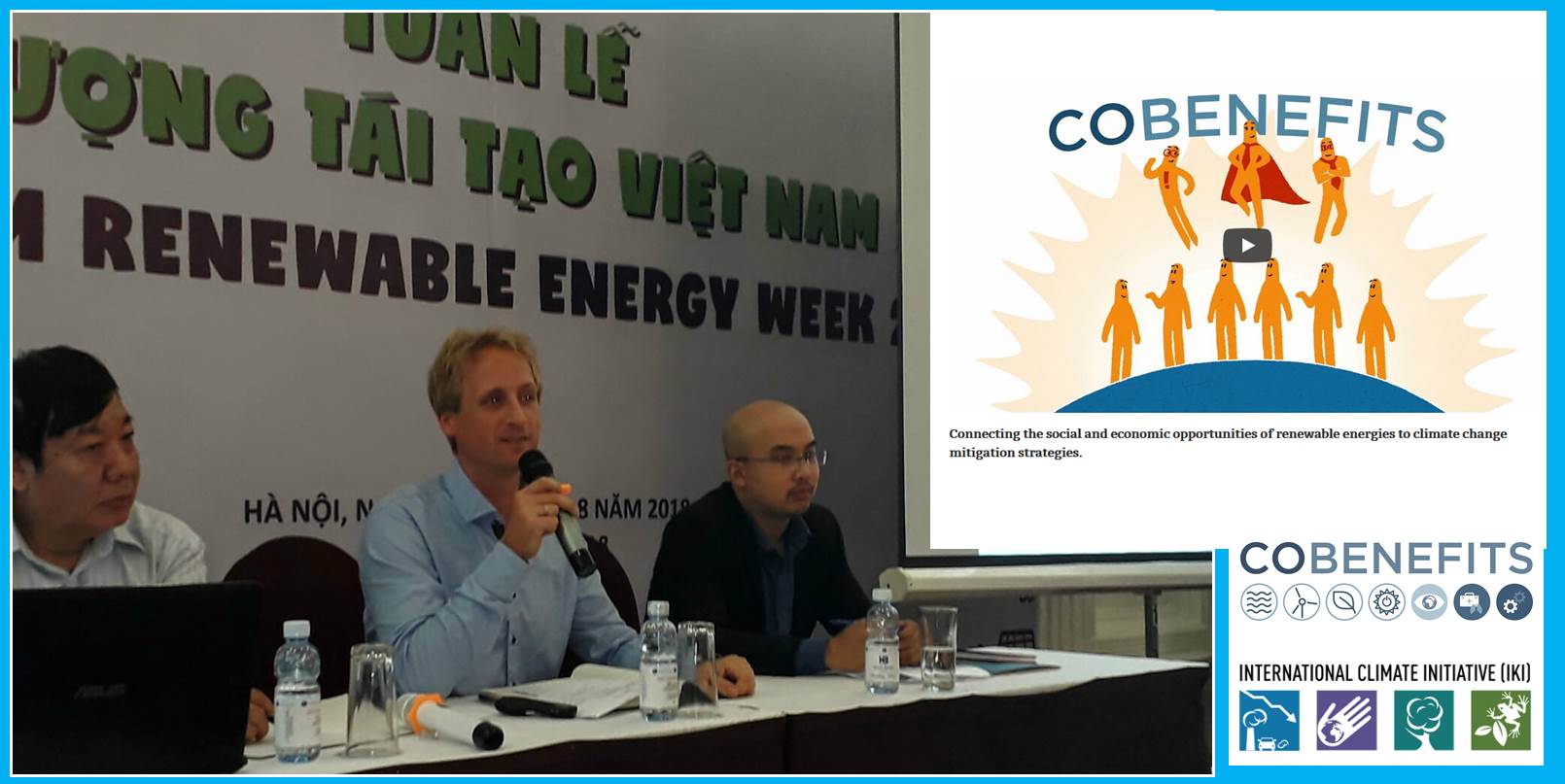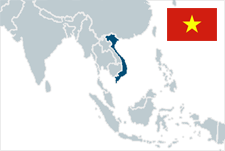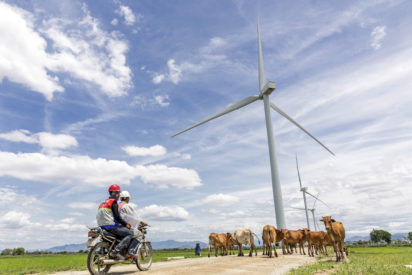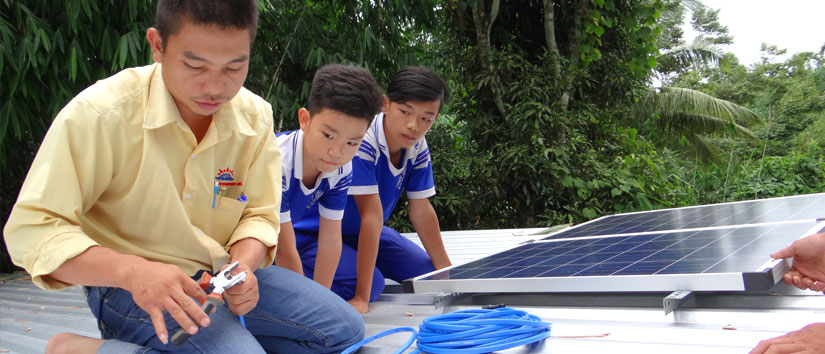
COBENEFITS Policy Report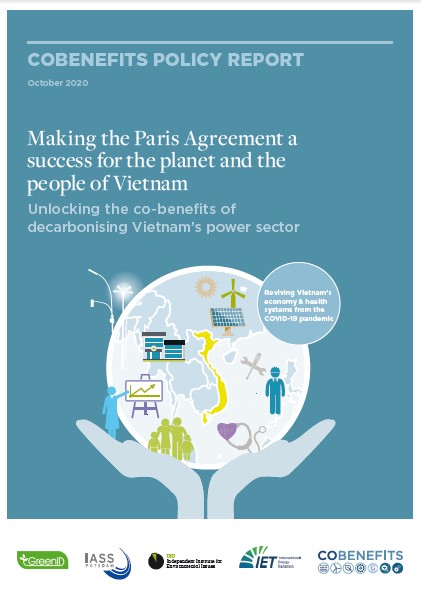
COBENEFITS Policy Report Vietnam
COBENEFITS Policy Report Vietnam (Vietnamese version)
Executive Summary (Vietnamese version)
The Policy Report compiles key findings from our assessments and formulates policy actions to harness the social and economic co-benefits of renewables.
COBENEFITS Studies in Vietnam 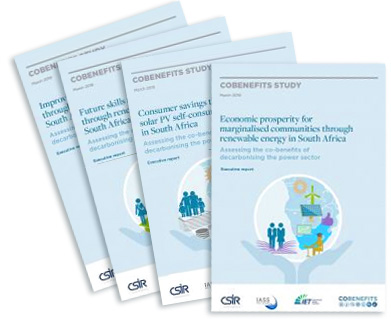
- Electricity access and local value creation for the un-electrified population in Vietnam
- Future skills and job creation through renewable energy in Vietnam
Main study results
The studies show how the implementation of renewable energy resources can have a positive impact on electricity access and job creation.
Electricity access
2% of the Vietnamese households, predominantly located in regions with terrain unfavourable to grid expansion, have not been electrified, yet. These areas have become technoeconomic moot points. To this end, discussions have explored whether cost-effective, off-grid renewable energy (RE) alternatives could assist the electrification of these remaining populations. The studies show that communities in Vietnam that are far from the nearest medium-voltage distribution system are best served by off-grid renewable energy technologies. Additionally, opportunities for direct employment in the local renewable energy value chain can be fostered through effective collaboration between local technical schools and the private sector for planned projects; this essentially aids „localisation of industry“, which in turn drives local employment creation and skills transfer.
Job creation
With the decision by the Vietnamese Government to increase the share of renewables from 6 % to 10.7 % in the current power sector plan (PDP 7 rev), the government paved the way to creating 315,000 job-years through the power sector by the year 2030. The government can further boost employment as renewables create twice as many jobs as the fossil-fuel sector per average installed MW. Up to 1.94 million job-years can be created in the country through the power sector transformation between 2015 and 2030. Over that 15-year period, solar and wind will create 3.5 jobs and 2.8 jobs respectively per average installed MW capacity, whereas coal creates only 1.4 jobs. By the year 2030, the demand for higher-skilled workers in the power sector is expected to grow by 31% for jobs during the construction and installation phase, and 25% for jobs in operation and maintenance. The tendency for high-skilled workers in the power sector is expected to further increase. Therefore, the training capacities at universities and technical schools need to be reconciled with this development, in order to create employment in Vietnam and to meet the expected demand in the country.
COBENEFITS Council Members in Vietnam
- Ministry for Planning and Investment (MPI)
- Ministry of Industry and Trade (MOIT)
- Ministry of Natural Resources and Environment (MONRE)
- Central Propaganda Department of the Communist Party of Vietnam
- Ministry of Labour, Invalids and Social Affairs (MOLISA)
- Ministry of Health (MOH)
COBENEFITS Focal Points in Vietnam
GreenID is a Hanoi-based non-profit organisation established under the Vietnam Union of Science and Technology Associations (VUSTA). GreenID works to promote sustainable development in Vietnam and the larger Mekong region and has become a leading civil society actor in the promotion of sustainable energy sector development. GreenID has project-specific experience coupled with cutting-edge global knowledge and expertise in the integration of sustainable solutions into policy and local communities.
Making renewables a success for the people in Vietnam and recovering from the impacts of COVID-19: The video presents key findings from assessments on co-benefits of renewables for health, employment, and energy security in Vietnam.
English version:
Vietnamese version:





